there’s lots of jobs for all of us who were laid off. There are lots of jobs, but not a lot of good-paying jobs that let you live in Hawaii as it gets more expensive. The union got us good wages. It’s hard to find another job that will pay like that.”
“As we were going through the current contract, we could tell our forefathers knew the climate well, and had planned for a company closure. That’s where severance package came into play,” said Kelly Ruidas, the sugar representative on the International Executive Board. There was strong language in there that benefited rank-and-file members that very few of us knew existed. But when we came across the severance language and other favorable provisions in the contract, we felt so thankful for those who came before us who had a hand in crafting our contract. I felt so humbled to be part of ILWU and what it stands for – looking out for the workers and their future.”
The legacy of family
The final harvest event attracted a groundswell of media attention, the presence of every news crew and cameraman pushing a determined remembering of sugar and “how it used to be.”
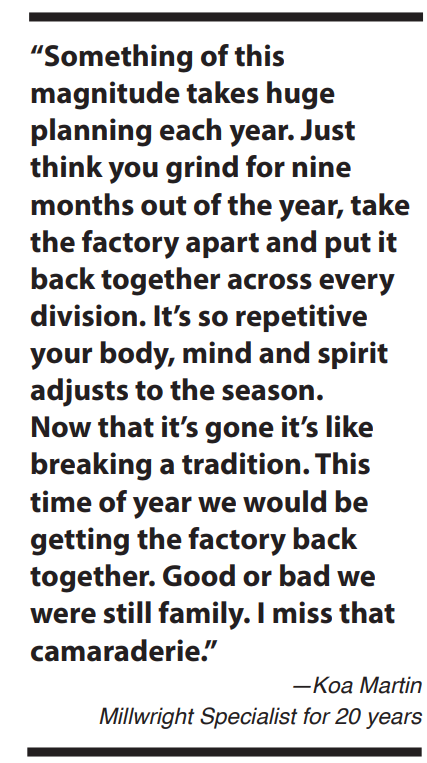
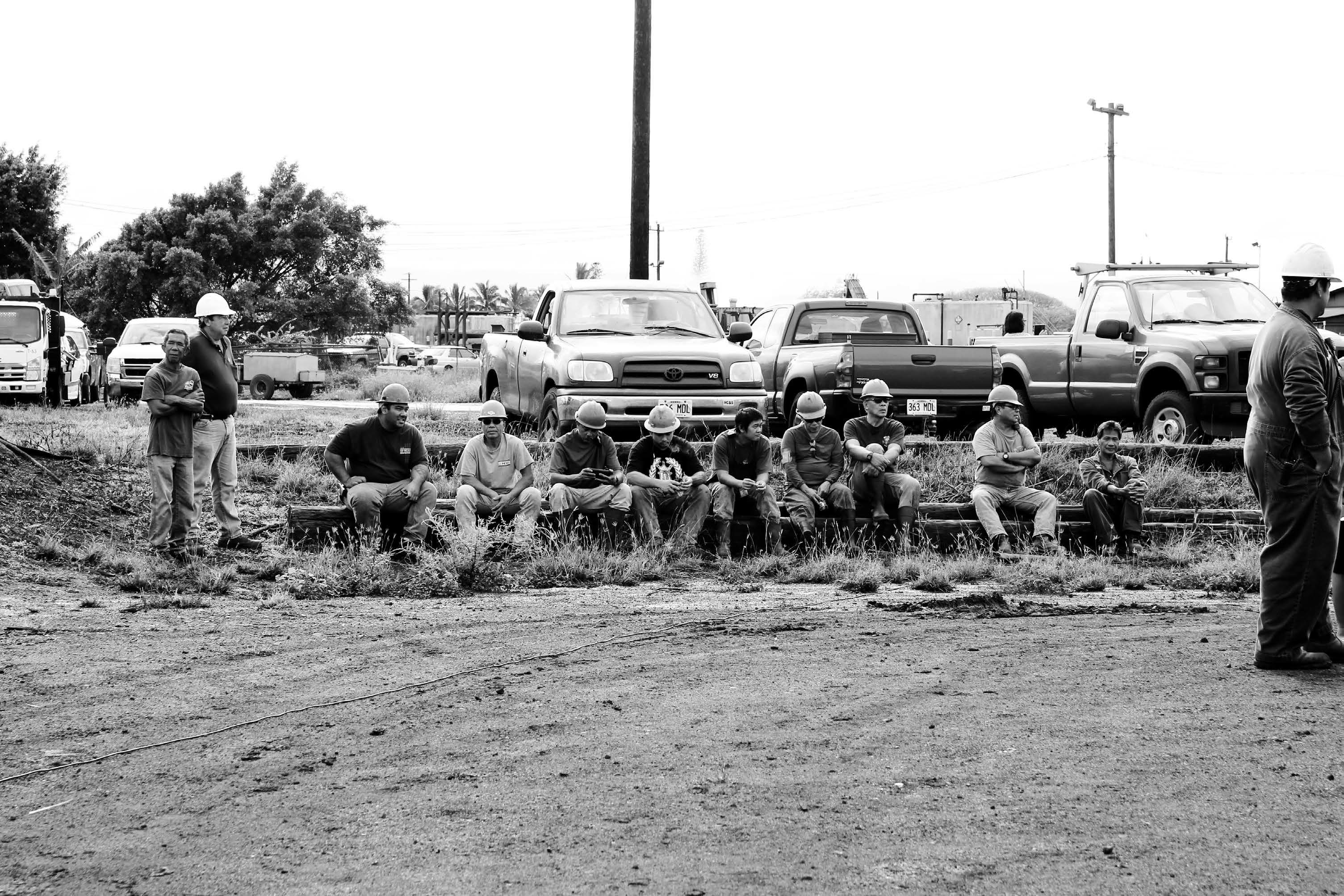
Workers at the final harvest listen to speakers, including Father Terry Watanabe, who said plantations served as a reminder that “we don’t do anything alone.” ILWU members were joined by union leaders, community supporters and elected officials at the event.
But how about what will be? A month later, on January 14, 2017, Alexander and Baldwin threw a Mahalo Luau at Maui Tropical Plantation for HC&S employees. The mood was softer, gentler than the one at the Final Harvest, the aftermath of the closure framed less by media frenzy and more by the resilience of the human spirit. “I still waking up early like I gotta go work,” laughs Michael Miller, an electrician. “But you just gotta move on.”
Wes Bissen, a machine specialist who passed away days before, was honored that night. “He was like everybody’s uncle,” said Daniel Martinez, unit chair and millwright at HC&S for eight years. “He’s actually the one who encouraged me to run for the chairmanship position. And pushed me to go to a union meeting. We all learned from each other not just because the plantation had so much range of skill sets, but we learned from each other just by looking out for each other too.” The technical part of the job was just one layer of the work experience at HC&S; the core of the HC&S work experience was the camaraderie—that void will be harder to fill.
Lessons moving forward
The end does not imply failure. Especially if one can learn from the past. The resilience of HC&S unit negotiating members showed a fighting spirit that all members can remember for the future. Or better yet, apply to their own industry. “I’ve learned that it’s so important to be aware of the internal and external workings of one’s industry. You should know your company well, and try to keep your eyes on other moving parts like economics and laws that can affect your industry. Protect your livelihood. See where your industry is going. If you have the opportunity to make a positive impact to help your industry whether it’s legislatively or within the company, by all means, do it,” Ruidas said.
HC&S was the last company of its kind in Hawaii, and the finality heightened the stakes in negotiations. How does one push for change even when your destiny seems so final? Unit chair Martinez offered, “Don’t be afraid to ask questions. I didn’t know a lot about contracts and stuff. But the one thing I learned was that no matter how dumb I think the question is, I’ll just keep on not knowing til I ask. So it’s not a dumb question, it’s just something you need answered. You can always learn and empower yourself that way.”
What’s next?
The contrast between the muddy day at the final harvest compared to the lush grounds at Maui Tropical Plantation for the employee luau could serve as a fitting metaphor: a lotus blooms in the mud. Or as Ruidas said, “When one door closes, another one opens. I’m pressing the reset button. I’m going back to school with the TAA money.”
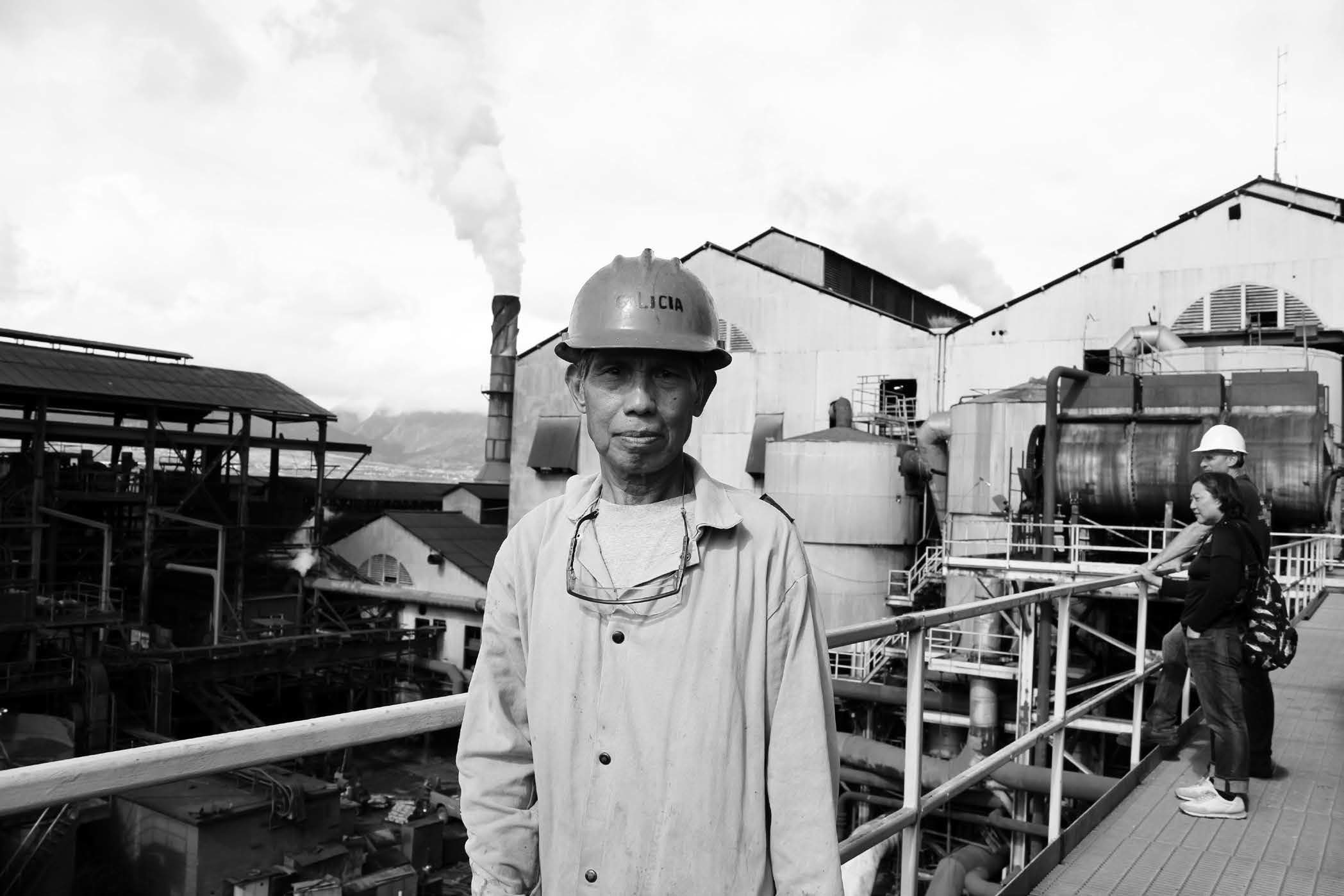
“No can beat Maui. This is home sweet home. I will miss the bond and the feeling. I worked with these guys every day,” said Miguel Galcia, cane hauler with HC&S for 45 years.
“Who knows what’s next?” Fely Corpuz whispered to me at the final harvest, clutching her photo album close to her chest. “But God is good, eh?”
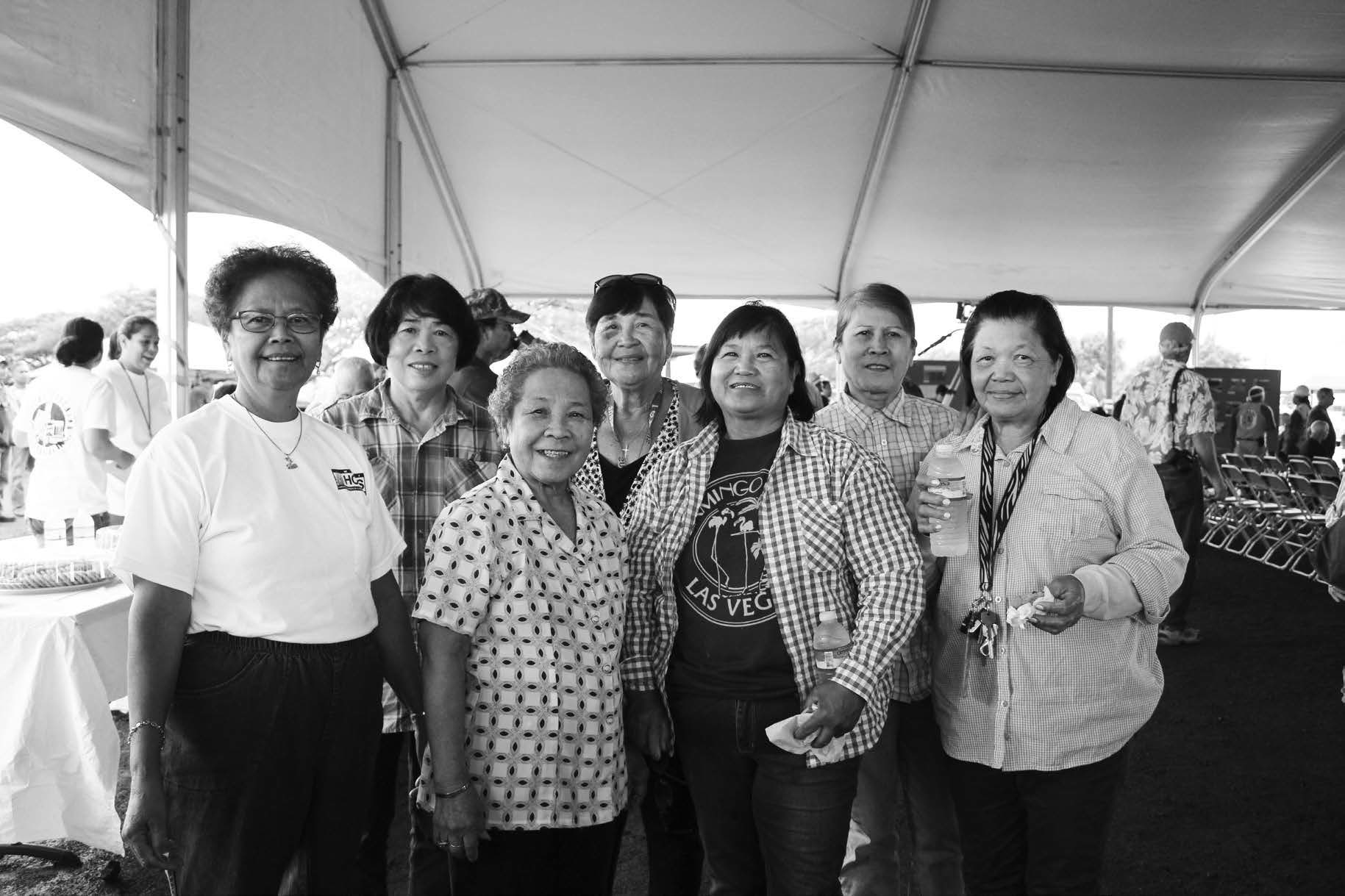
“I cried at the final harvest. Tears just came. I remember taking care of my family in those days. The hard work. So now I tell my grandkids, ‘Study hard. Please just study hard.’ We worked for this,” said Conchita Decambra (far left). L-r: Decambra, Virginia Domingo, Fely Corpuz, Amparo Pardo, Filomena Valdez, Avelina Bulosan and Teresita Garcia.
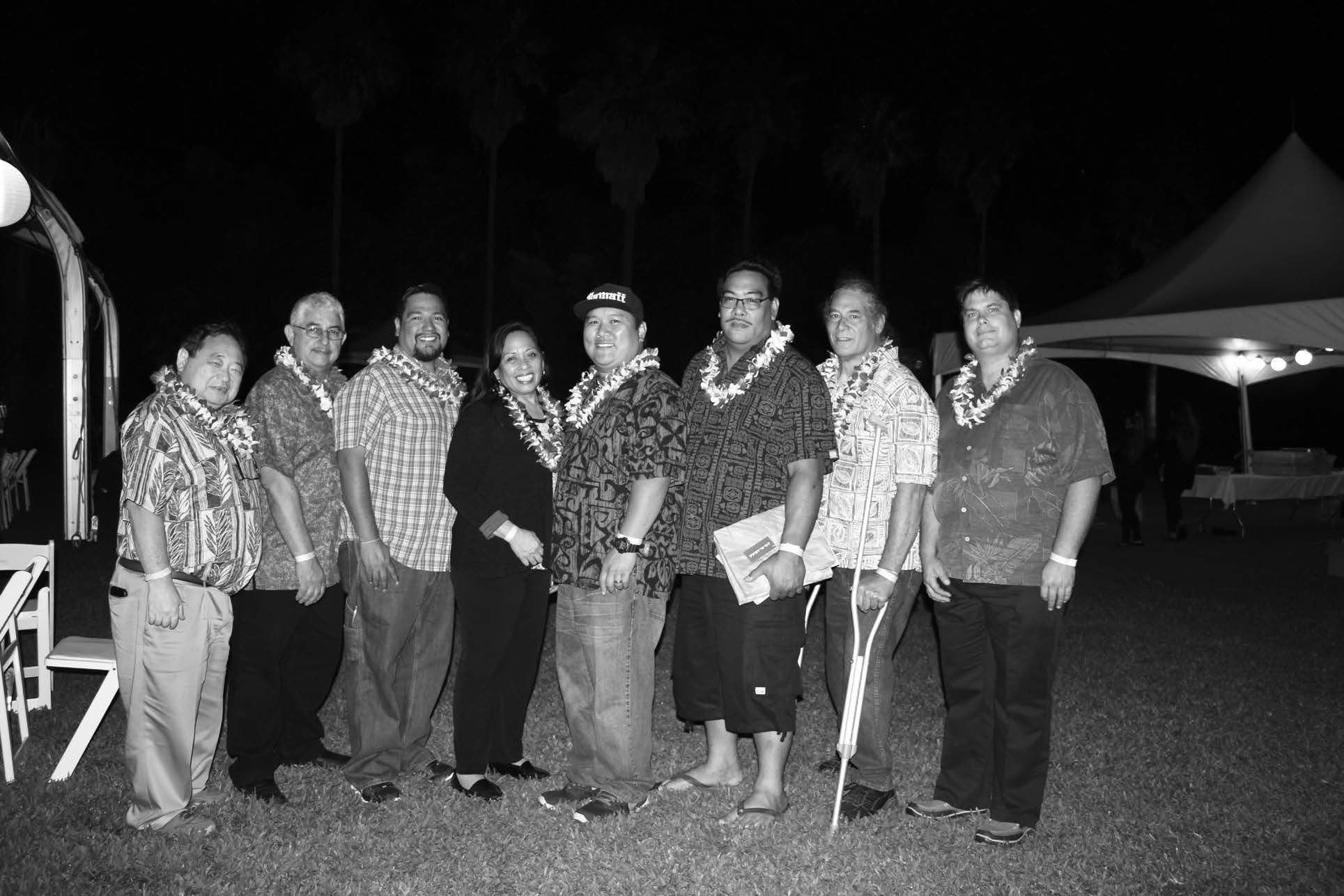
L-r: Local Secretary-Treasurer Guy Fujimura, Maui Division Director Steve Castro, Unit Chair Daniel Martinez, Local President Donna Domingo, Unit Treasurer Ian Cabtingan, Koa Martin, Karl Kahui (Unit Chair/Steward for HC&S Clerks and Technical Employees), and Unit Bulletin Editor Ben Wilson at the employee luau.
